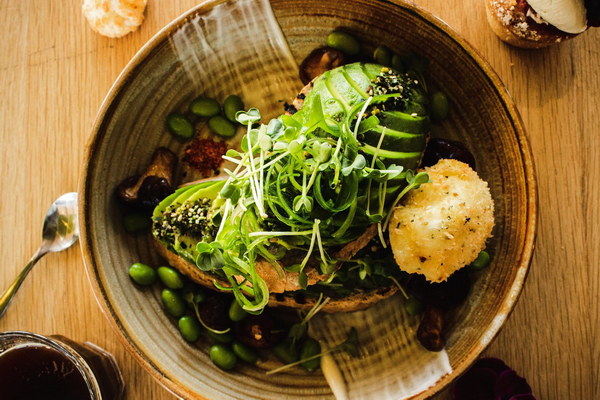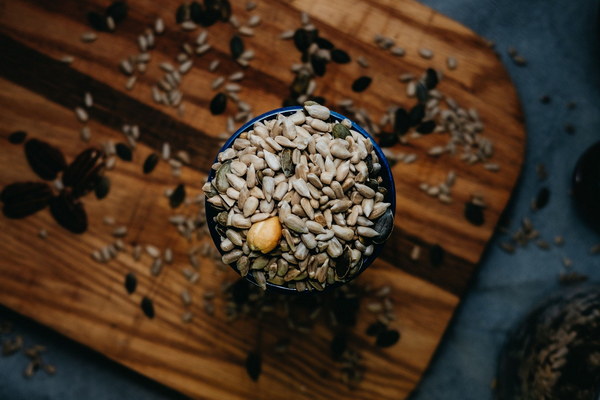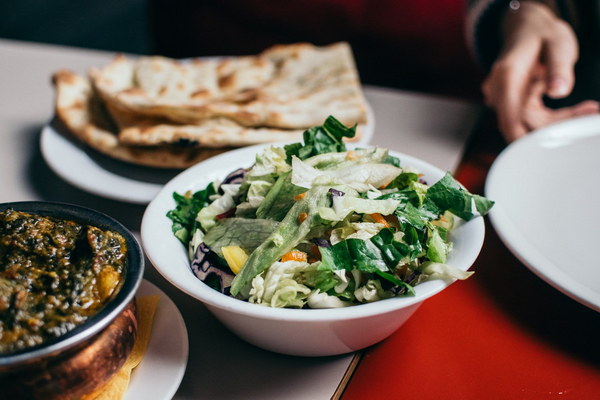Nourishing the Spleen and Stomach Traditional Chinese Medicines Holistic Approach to Gut Health
In the realm of Traditional Chinese Medicine (TCM), the health of the spleen and stomach is considered fundamental to overall well-being. The concept of balancing the spleen and stomach is rooted in the belief that these organs play a crucial role in the transformation and transportation of nutrients, which in turn supports the body's energy (Qi) and blood production. Here, we delve into the various methods of TCM that focus on nurturing the spleen and stomach.

1. Diet and Nutrition
The first and most direct approach to nourishing the spleen and stomach in TCM is through diet. It's recommended to consume foods that are warm, easy to digest, and rich in nutrients. Here are some key dietary tips:
- Warm and Slightly Sweet Foods: These foods are believed to support the spleen, which is associated with the Earth element in TCM. Examples include rice, millet, sweet potatoes, and root vegetables.
- Avoid Cold, Raw, and Excessive Foods: Cold foods and drinks are thought to weaken the spleen by impeding its function of transforming and transporting nutrients. Foods that are too raw, such as salads, and those that are overly sweet or spicy should be consumed in moderation.
- Balanced Diet: A diet that includes a variety of foods, including proteins, carbohydrates, fats, vitamins, and minerals, is essential. This ensures that the spleen has the raw materials it needs to function properly.
2. Herbs and Supplements
TCM utilizes a wide array of herbs and supplements to support the spleen and stomach. Some commonly used herbs include:
- Astragalus (Huang Qi): Known for its immune-boosting properties, it helps strengthen the spleen and improve digestion.
- Licorice (Gan Cao): This herb is used to harmonize the body and relieve symptoms such as bloating and indigestion.
- Ginger (Sheng Jiang): Ginger is used to stimulate digestion and alleviate nausea, which can be beneficial for spleen and stomach health.
3. Acupuncture and Massage
Acupuncture, a key component of TCM, involves inserting fine needles into specific points on the body to restore balance and promote healing. Points related to the spleen and stomach are commonly used to address issues such as bloating, diarrhea, and poor appetite.
Massage, particularly abdominal massage, can also be beneficial. It helps to stimulate the circulation of Qi and blood in the abdominal area, which can improve digestion and alleviate discomfort.
4. Lifestyle Adjustments
In addition to diet and herbal remedies, lifestyle plays a significant role in maintaining spleen and stomach health. Here are some lifestyle tips:
- Regular Exercise: Moderate exercise, such as walking, tai chi, or yoga, can help improve digestion and overall health.
- Stress Management: Chronic stress can weaken the spleen. Practices such as meditation, deep breathing exercises, and spending time in nature can help manage stress levels.
- Proper Sleep: Adequate sleep is crucial for the proper functioning of the spleen and stomach. Establishing a regular sleep routine and ensuring a comfortable sleep environment can support digestive health.
- Moderation in Drinking: Excessive alcohol and caffeine can irritate the stomach and spleen. Limiting intake and choosing healthier beverages can help maintain a balanced digestive system.
By incorporating these TCM practices into daily life, individuals can support the health of their spleen and stomach, leading to improved overall well-being. It's important to note that while TCM offers a holistic approach to health, it should be used in conjunction with, and not as a replacement for, conventional medical treatment when necessary.









